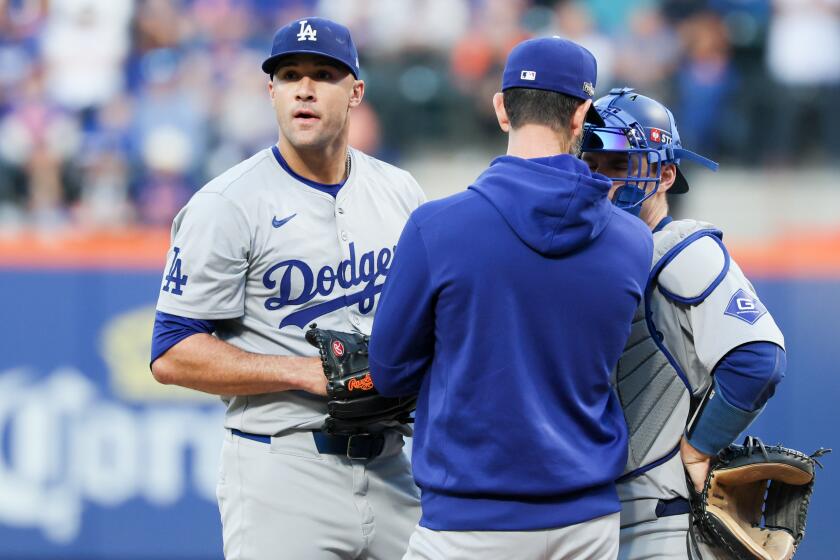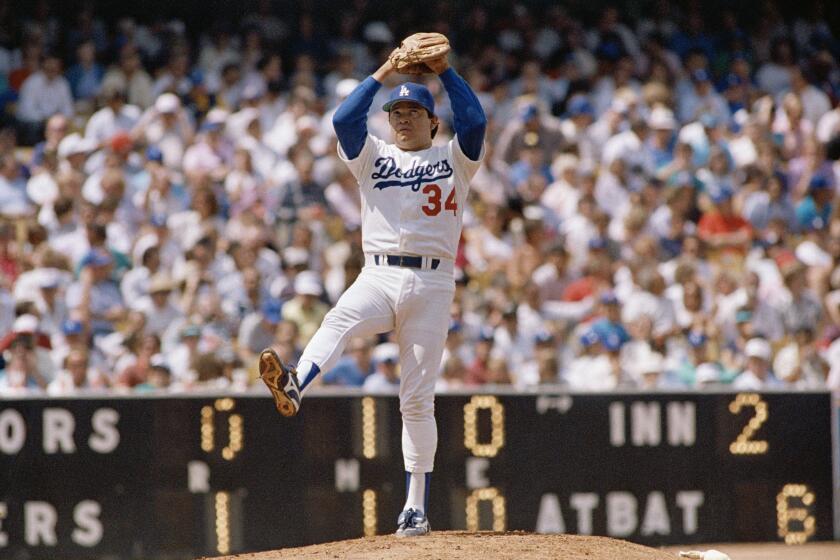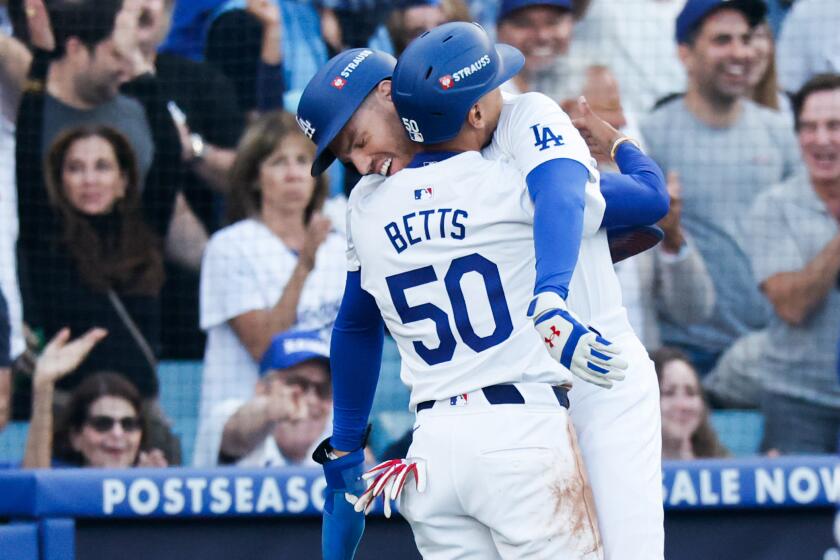Dodgers interested in ‘strategic partner’ for Mexico, South Korea
The NFL is not the only kind of football that has been proposed for the Dodger Stadium parking lot. In April, within days of the announcement that Guggenheim Baseball would buy the Dodgers, Lorenzo and Antonio Cue approached one of the new owners, Todd Boehly.
The Cue brothers, then the operators and half-owners of Chivas USA, pitched a marketing partnership between Chivas and the Dodgers, and a new soccer stadium adjacent to Dodger Stadium.
The Guggenheim purchase had not yet closed. The idea of committing to a new home for Chivas -– or anything else -– on the Dodger Stadium parking lot would not work for Guggenheim Partners President Todd Boehly. The marketing deal would.
“I think we need to find a strategic Mexican partner first [and] foremost,” Boehly wrote in an email obtained by the Los Angeles Times, “to help us speak to our existing Mexican fan base and to help us grow our Mexican fan base and grow merchandise opportunities throughout Mexico.”
In that email, Boehly asked the Cues to consider becoming that “strategic Mexican partner” and, as such, to invest $50 million to $100 million toward a share of Dodgers ownership.
Lorenzo Cue, whose family sold its ownership interest in Chivas USA last August, declined to comment, according to his spokesman.
On the surface, the invitation to invest in the Dodgers would appear to offer the first evidence in support of the widely held belief in baseball circles that Guggenheim had overbid so significantly that Boehly and Mark Walter, the Dodgers’ controlling owner, were frantically trying to add deep-pocketed partners.
Boehly and Walter led a group that paid $2 billion to buy the Dodgers. Boehly says the team now is worth $3 billion.
The Guggenheim purchase did not fit the traditional models of sports team ownership: a rich guy, a partnership of rich guys, a corporation buying the hometown team, or a corporation buying a team with an obvious business purpose in mind -- most commonly, a television company wanting to make sure the team did not take its business to another television company.
More than $1 billion of the money used to buy the Dodgers came from insurance company funds managed by Guggenheim Partners and controlled by Walter. Guggenheim Partners manages more than $160 billion in assets; Walter is the chief executive and Boehly is the president.
Neither Major League Baseball nor state regulators objected to the use of insurance company funds in the purchase of a baseball team, to the astonishment of at least one rival bidder for the Dodgers. The financially fickle nature of running a pro sports team appears at odds with the predictability and security prized in a long-term investment, but Boehly says the insurance company funds will be repaid, over time, with interest.
“Guggenheim’s past dealings with the Indiana Department of Insurance have demonstrated to us that the company and its representatives are of the highest integrity, and we have not taken exception to any interest Guggenheim may have in the Los Angeles Dodgers, nor do we plan to do so,” Stephen W. Robertson, Indiana commissioner of insurance, said in a statement last March.
In reality, Boehly said, the new owners had no need for money. They talked with the Cues in the hope of adding a Mexican perspective to the ownership group. They talked with the chairman of E-Land, the South Korean retail giant that backed Peter O’Malley’s bid to buy back the Dodgers, in the hope of adding a Korean perspective.
Neither deal came to fruition. However, as the new owners invest in community relations and international scouting, they want to be in position to capitalize on whatever opportunities might arise.
“We are not interested in just getting capital,” Boehly said. “It is all strategic. And we want to make sure it is strategic, because we want to reflect the community in which we are operating.
“So it had nothing to do with the need of capital, as opposed to a strategic partner that can help us diversify our vision and make sure we are living up to our commitment on the fan experience.”
ALSO:
Is Angels owner Arte Moreno obsessed with the Dodgers?
Under construction: Dodger Stadium busy with renovations
Dodgers’ new owners see winning business model; others see trouble
More to Read
Are you a true-blue fan?
Get our Dodgers Dugout newsletter for insights, news and much more.
You may occasionally receive promotional content from the Los Angeles Times.










